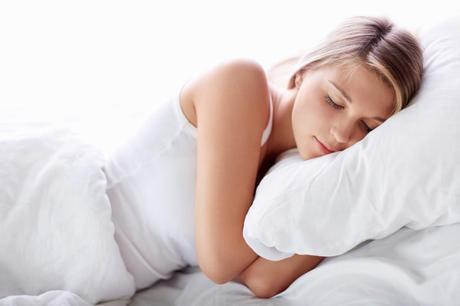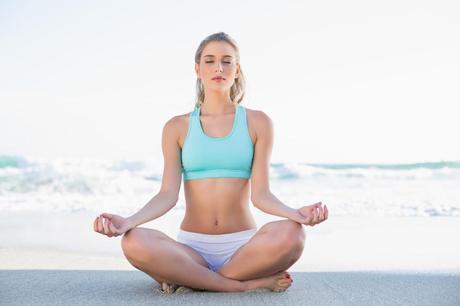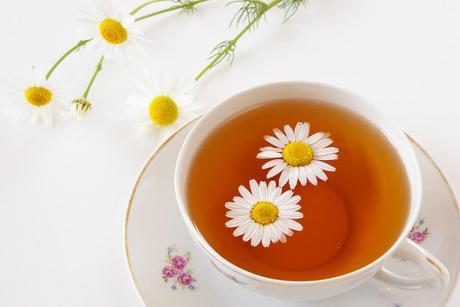
I am generally a pretty heavy sleeper, but I do wake up several times during the night – and I’ve noticed that sometimes, it becomes worse than others. It can have something to do with my current workload and how much I have on my mind, but mostly it’s to do with how I’ve lived my day and the habits that I’ve enacted.
There are generally four factors which play a part in quality of sleep: liquid intake (caffeine, alcohol), physical tiredness, mental relaxation and nutrition.
How liquid intake impacts sleep
I find that if I have too much caffeine (at any time during the day), I’m more likely to have a restless sleep. Particularly if I drink Coke Zero (heavily caffeinated) with dinner – which is rare, but when it does happen, I can kiss a restful sleep goodbye. In fact, I try to stick to one coffee a day now, with some weeks caffeine-free.
Similarly, after drinking any wine at all I find that it impacts the longevity of my sleep – I get to sleep faster, but wake up in the early hours of the morning and feel restless until completely waking.
Physical activity at the right time can ramp up quality of sleep
Another huge factor which I’ve found plays a part in my quality of sleep is exercise. If I don’t exercise for a few days in a row, I find that my sleep is more broken and it’s actually harder to fall asleep in the first place. Equally, if I exercise strenuously too late at night – say, after 7pm – my body is wired up and I find it difficult to get a proper night’s rest. The best time for exercise, I’ve found, is in the morning. Second to that is lunch time, but it’s simply logistically harder and you’re more likely to come up with an excuse not to do it because the day gets in the way.

The effects of mental relaxation on sleep
When I have a lot on my mind, it’s inevitable that it will tick over with all of the stuff I have to do. The best way to counter this is through meditation. I love using guided meditations to relax my mind and body (Claire Obeid of The Wellness Project is currently doing a 21-day free guided meditation project which I am loving right now. You can access it here). Another way to get stuff off your mind is to simply write down everything you’re thinking about, and everything you have to do tomorrow, before you go to sleep. This gets it onto paper where it can be actioned later, and off your mind for a more restful sleep.
How nutrition can impact the quality of your snooze
Have you ever eaten a really heavy dinner then gone to bed? The body is trying its hardest to process the food and it can keep you in an uncomfortable sleep, where you’re more likely to wake up numerous times. Similarly, I find that eating a lot of sugar before bed gives me a broken sleep. It’s unavoidable sometimes (unless you’re a perfectly clean eater – but let’s face it; we all indulge at times!), however it’s useful to notice the impact it can have on the quality of your sleep.
According to psychologists from Talking Minds, sleeping well is crucial for a happy and productive life. The benefits of sleep ranges from restoring your brain’s neurotransmitters, regulating your body weight, to lowering your blood pressure and cholesterol levels. According to Talking Minds, it can also help to combat anxiety and depression.
If all else fails, here are some of the more natural sleep remedies you can try:
Valerian
The Valerian plant has been used to centuries to treat insomnia. In human clinical trials and tests, valerian has been shown to affect levels of the calming neurotransmitter GABA. It is usually taken an hour before sleep and should not be used for more than three months at a time to avoid dependency.

Chamomile Tea
A traditional and popular sleep remedy, Chamomile’s flavonoid compound apidenin has been shown to be the key element. Its anti-anxiety effects creates relaxation and leads to better sleep. Brew a cup and have it about an hour before you get into bed. I actually drink chamomile tea every evening after dinner – it helps me to relax and also reduces any post-dinner sugar cravings (sometimes!).
Passionflower
Passionflower is a Peruvian plant that was stumbled upon by Spanish explorers in 1569. Passionflower has long been used to relive muscle spasms, seizures, high blood pressure, and insomnia. It is available as a liquid extract or in tablet form.
Yogurt and cheese
Trytophan and calcium contained in yogurts and cheeses make a great combination to help induce sleep. Calcium in particular is very effective in reducing stress levels through stabilising the nerve fibres in the brain.
Further helpful sleep hints
Having a regular bed time helps to get your body into a regular cycle of sleep. Soothing music and sitting quietly – whether in meditation, reading a book or in a warm bath – can also help to promote a positive sleep routine.
Which habits help you to get a good night’s sleep?
Note: I partnered with Talking Minds on this post.

